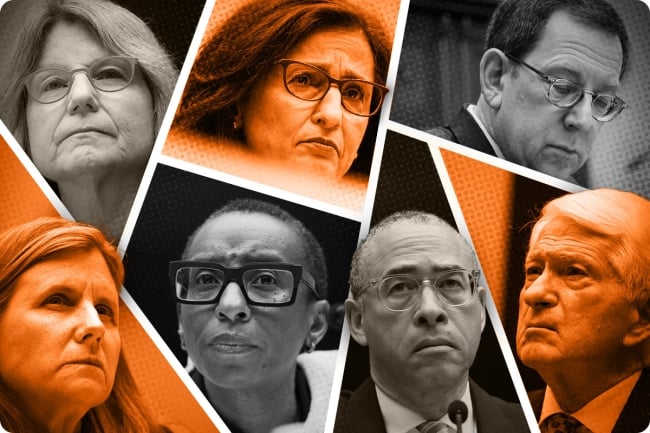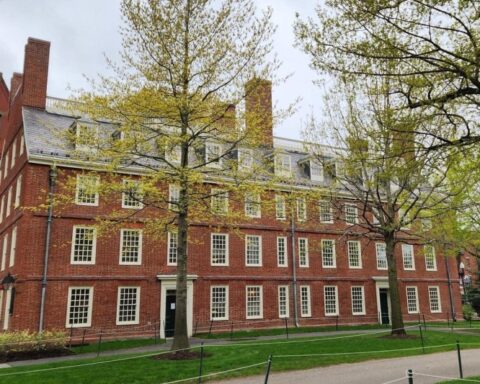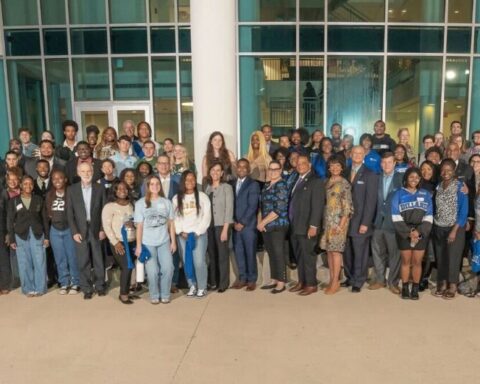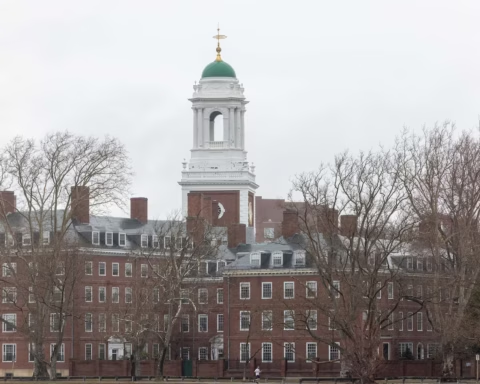By Josh Moody
Last Dec. 5, the presidents of three leading universities stepped before Congress for a hearing on campus antisemitism that was widely criticized when they failed to offer forthright responses on whether hypothetical calls for the genocide of Jews would violate their institutions’ policies.
Those three presidents—representing Harvard University, the University of Pennsylvania and the Massachusetts Institute of Technology—were followed by four others in two separate hearings in April and May as pro-Palestinian student protests swept campuses across the nation last spring.
Of the seven campus leaders who testified, only two remain on the job (though one was already on the way out). Here’s a look at where all seven leaders are today.
Liz Magill
Penn president Liz Magill was the first to go after the disastrous December hearing.
Though Magill quickly apologized and tried to clarify her comments in an online video, the damage had seemingly been done as Penn donors threatened to close their checkbooks. Despite board support, Magill resigned on Dec. 9, a mere four days after her testimony.
Board chair Scott Bok also stepped down while defending Magill for a “very unfortunate misstep” that came in “five hours of aggressive questioning before a congressional committee.” He added that she “provided a legalistic answer to a moral question” on calls for genocide.
While Magill remains a tenured faculty member at Penn’s law school, she has also taken on outside roles recently. In August, Magill was named as a visiting senior fellow in Harvard’s Center on the Legal Profession starting this fall and as visiting professor in the London School of Economics Law School beginning this fall through 2027. Both roles are temporary and unpaid.
Claudine Gay
Harvard president Claudine Gay was the second campus leader to step down after the Dec. 5 hearing. While she seemed poised to keep her job despite the storm of criticism that came after the hearing, Gay soon found herself facing plagiarism allegations related to her 1998 dissertation.
Already under fire for waffling, legalistic responses to Congress, Gay denied the plagiarism claims and Harvard allegedly threatened the New York Post with legal action when the newspaper initially reached out about the claims. When a conservative activist published the allegations, Gay vigorously defended her scholarship before later admitting to mistakes and publishing corrections.
She resigned amid mounting pressure on Jan. 2, less than a month after the congressional hearing. Her time as president, roughly six months, is the shortest in Harvard’s 388-year history.
Gay remains a tenured professor of government, African and African American studies at Harvard.
Sally Kornbluth
MIT president Sally Kornbluth was the only leader at the Dec. 5 hearing who kept her job.
Kornbluth, who is Jewish, seemed to answer congressional questions more directly than her peers and announced efforts to improve the campus climate amid the challenges presented by the Israel-Hamas war less than a week after the hearing.
Kornbluth may have also benefited from a less activist student body at MIT, which is heavily focused on science and technology, compared to Harvard or Penn, where politics looms large.
She remains president of MIT, where the board has signaled strong support.
Minouche Shafik
Columbia University president Minouche Shafik was not available to appear at the first hearing due to overseas travel, so Congress summoned her and two Columbia trustees to testify in April.
Shafik managed to largely avoid the missteps (and viral moments) of her predecessors, emphasizing how Columbia punished students and investigated faculty members over allegedly antisemitic speech. She also said that hypothetical calls for the genocide of Jewish people would violate universities policies, breaking with prior presidents who emphasized context.
Though Shafik mostly avoided a public relations disaster, she still faced congressional calls for her resignation after a protest encampment was set up on campus while she spoke to lawmakers. That encampment (and related arrests) would soon lead to copycat protests at universities across the U.S. and eventually culminate in the occupation of a campus building and multiple arrests.
Some faculty members also allege Shafik threw them under the bus when speaking to Congress. Columbia’s board, however, stood behind Shafik.
Shafik resigned in August, a move that surprised many observers with its timing. Shafik, who holds British, American and Egyptian citizenship, announced she was leaving to work with the United Kingdom’s foreign secretary in an international development role.
Gene Block
Chancellor Gene Block was already on the way out after almost two decades at the University of California, Los Angeles, nearing a planned retirement, when he sat before Congress in May. He is one of three Jewish presidents who testified before Congress on campus antisemitism.
While the House Education and Workforce Committee, particularly the Republican members, grilled the presidents of Rutgers and Northwestern over their responses to encampment protests and alleged antisemitic incidents, Block was pressed by Democrats on why UCLA was slow to respond to violent counterprotesters who targeted pro-Palestinian students.
Block told Minnesota representative Ilhan Omar that he “reject[ed] the premise” of her question about a delayed response and noted, at the time, that police were still investigating the attacks.
Block formally concluded his chancellorship at UCLA at the end of July.
Jonathan Holloway
Rutgers University president Jonathan Holloway weathered a contentious congressional hearing in May, with fewer dramatic moments than the leaders who testified in December and April, but still announced plans in September to step down and return to the faculty ranks after five years on the job.
Holloway, a historian by training, will take a sabbatical at the end of the current academic year before he resumes teaching duties as a tenured professor at Rutgers. While Holloway seemed to shrug off congressional calls for his resignation over a deal Rutgers struck with encampment protesters before the hearing, he said other campus strife—namely labor issues—prompted his exit from the presidency.
Under Holloway, Rutgers saw extended clashes over new contracts for unionized workers, prompting a strike (the first among the professoriate in Rutgers history) and a resolution last year in which faculty members declared they had “lost confidence” in the president. In stepping down, Holloway said safety issues related to the strike motivated his decision to leave the job.
“I don’t want to be in an environment where I need, where my family needs, protection,” Holloway told The Star-Ledger.
Michael Schill
Of the seven presidents who appeared before Congress, none stood more defiant than Northwestern president Michael Schill, who pushed back on lawmakers’ questions repeatedly.
Schill, who is Jewish, was the only president of a private institution at the May hearing and was both the most targeted and most testy among that trio of campus leaders. Frequently pressed by the committee, Schill refused to discuss individual faculty members (an issue that undermined Shafik’s support on campus after the April hearing) and deflected hypothetical questions.
Schill noted that Northwestern had managed to take down its encampment without violence and pointed out that while it struck an agreement with protesters, it did not pledge to divest from Israel. He also pledged his personal commitment to fighting antisemitism and to making changes.
“We will revise our student code. We will enhance enforcement. We will increase our security, and we will do what we do best, teaching our students about the dangers of antisemitism,” Schill said.
Schill, who remains Northwestern’s president, seems to have emerged relatively unscathed, though some faculty members have accused Northwestern of taking a hard line on protests, noting the suspension of Steven Thrasher, a professor who tried to block the arrest of students.





